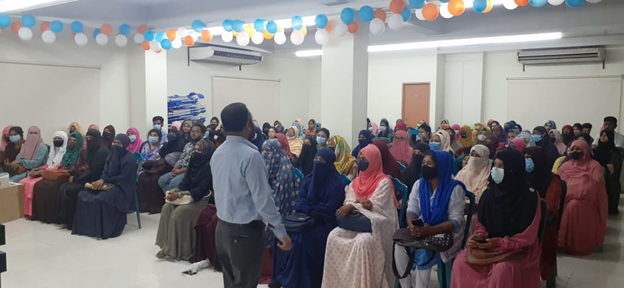Financing Virtual Migration for High-growth Microentrepreneurs is a comprehensive study that examines the role of financial mechanisms in facilitating virtual migration for microentrepreneurs seeking opportunities in high-growth sectors. Virtual migration refers to the practice of individuals providing services remotely to clients or companies located in different geographical locations.
This study explores the challenges faced by microentrepreneurs in accessing the necessary financial resources to transition into virtual migration. It examines the specific financial needs and constraints of microentrepreneurs, considering factors such as access to capital, credit, and financial literacy.
The research delves into innovative financing models and mechanisms that can support microentrepreneurs in their virtual migration endeavors. It explores the potential of microfinance institutions, crowdfunding platforms, peer-to-peer lending, and other digital financial solutions in enabling access to capital for virtual migration initiatives.
The study also examines the impact of financing virtual migration on the growth and development of microenterprises. It assesses the benefits and risks associated with virtual migration, including income generation, scalability, and market access. Additionally, it considers the potential for job creation, skills development, and economic empowerment within local communities.
Through interviews, case studies, and data analysis, the research highlights successful models and best practices in financing virtual migration for high-growth microentrepreneurs. It identifies the key stakeholders, policies, and interventions needed to create an enabling environment for virtual migration financing.
Ultimately, this study aims to provide valuable insights and recommendations to policymakers, financial institutions, and microentrepreneurs themselves on the potential of financing virtual migration as a catalyst for economic growth and poverty reduction. It underscores the importance of inclusive and accessible financial services in unlocking the potential of microentrepreneurs and fostering sustainable development in the digital age.
The northern region of Bangladesh is not well-connected largely with the urban labor markets of the capital city and has the lowest participation rate in the labor market. Bringing employment growth and entrepreneurial creation to this area, MF (MOMODa FOUNDATION) intends to give emphasis, especially to female candidates, who have few job opportunities, particularly in rural areas, given patriarchal social norms, and family obligations that hinder active labor force participation.
MOMODa thinks an online freelancing platform can enable many females to enter entrepreneurship, with the freedom to work from home and access global clients to earn a competitive wage.
In this sense, a six-month-long training program (three months of training programs and internship) on graphics design only for females is being conducted by the MF in collaboration with the Sarah Institute of E-Generation, a renowned IT training institute in northern Bangladesh, under the supervision of researchers from Oxford University and Florida International University to learn more about the experience of individuals who have had training in freelancing or graphics design skills.
Females of rural areas with minimum educational qualification of SSC or equivalent are targeted in this project to finance the relatively high initial cost of an online freelancing training program, using different microfinance contract structures that we randomly assigned. Following this wave (36 female participants in 1st phase), in this project considers an innovative new microfinance product, based on the principles of equity financing, in which promising potential entrepreneurs in Bangladesh are provided with capital, training, and mentorship to help them become online freelancers.
MOMODa feels confident now implementing this exploratory project, given the previous experience and strong local partner. An open session of the graphic design course was held with the female participants.
